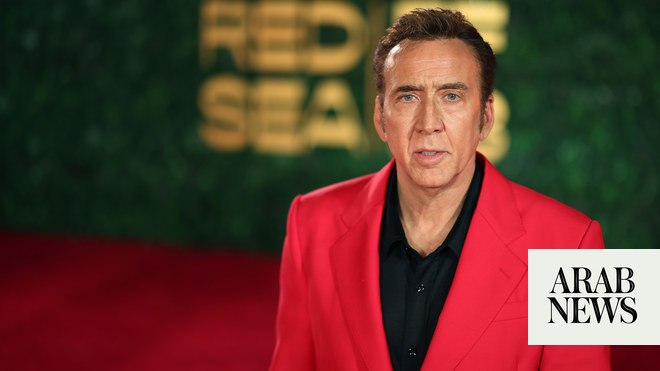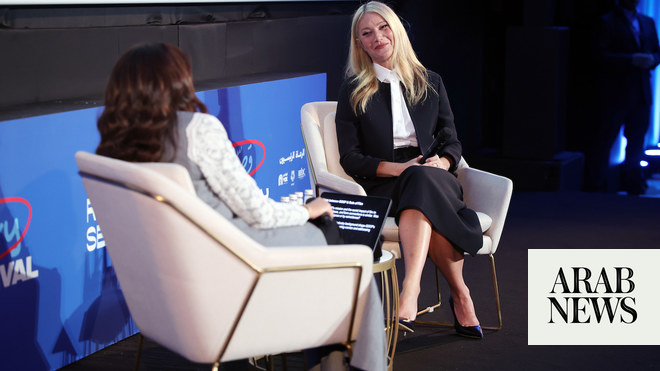
JEDDAH: As the end of the 10-day Red Sea International Film Festival comes to an end, Arab News goes behind the scenes to speak to some of the people who made it happen.
In 2018, film producer Antoine Khalife, long known as a catalyst for Arab cinema worldwide, received a call from Saudi filmmaker Mahmoud Sabbagh. Khalife was eager to work with Sabbagh on a new film; the Saudi director wanted to convince Khalife to join his team at Saudi Arabia’s first-ever international film festival in Jeddah, the RSIFF.
“He told me to visit Jeddah and see what I think,” recalls Khalife. “I went and fell in love with the city and its people. I realized that Jeddah had great potential for a receptive film audience. What convinced me was the people I met in Jeddah and the young filmmakers in Saudi.”
The decision was made, and Khalife, who has worked on countless films by Lebanese director Nadine Labaki and at film festivals worldwide, including in Dubai, Venice, and Cannes, came on board as the director of Arab programs and classics.
While the artistic directors of the festival have changed since then, with Sabbagh, the director of romantic comedy “Barakah Meets Barakah” (2016), stepping down in 2020 to be replaced by Edouard Waintrop, Khalife maintained his commitment, convinced of its potential as a great catalyst for the Saudi film industry.
This is not the first time Saudi Arabia has staged a film festival, but the RSIFF marks the first time it has held one that is international in character, with filmmakers participating from the Kingdom, greater Middle East, Africa, and around the world. This year, the festival launched a $14 million fund to support Arab and African filmmakers, reflective of its international outreach.
What ensued after Khalife joined was a whirlwind few months of planning and organizing amidst the unpredictable winds of the pandemic to launch the first edition of the RSIFF.
“Last year we had finalized a strong program and then it got postponed due to COVID-19,” Khalife told Arab News. “It was frustrating, but I stayed regardless because I saw a lot of potential in the festival and in the Saudi film industry.”
There were, says Khalife, many challenges for the team to surpass. “The first challenge was to create a robust program of Arab films. I began by contacting producers and distributors early on to have a strong Arab film selection,” he said.
Given the challenges of COVID-19 and the fact that it was RSIFF’s first edition, he often had to explain to colleagues that the festival was still taking place and why it was relevant to the Arab and international film industry.
“Often people would express doubt asking if we would cut and edit political or sensual scenes,” Khalife told Arab News. “In the end we were guaranteed the films that we wanted, and all the films were shown in their original version.”
He emphasizes that none have been cut, a testament to Saudi Arabia’s changing social landscape.
“It was crucial that we had a strong program with a lot of perspective from all parts of the Middle East,” said Khalife.
“We worked with the Ministry of Culture and they gave us the liberty to do the program that we wanted. At times I was concerned about how the public would react to some films but the discussions that took place after each showing were really amazing and respectful. Especially the questions from the women here to the filmmakers were educative and professional, not aggressive. They wanted to understand.”
Rana Jarbou, a Saudi film director and manager of Talent Days, a two-day collateral program of events providing opportunities for Saudi youth to engage in filmmaking, noted how rewarding working on the festival was, but added that the challenges lay in putting it together for the first time.
Jarbou joined in August 2021 and, as she says, “jumped in and started swimming to get the job done” to create a program in line with the festival’s aims to “encourage up-and-coming young Saudi filmmakers and grow the local film industry.
“It was really challenging to stage because it was the first time. I have been to many film festivals, but I have never worked for a film festival,” she told Arab News. “To organize a two-day program with over 50 speakers is a lot but totally worth it. I knew what I was getting myself into and that by doing this program to help young filmmakers I could promote creative change for my country.”
The highlights for Jarbou were that she was able to take the initiative, be creative and come up with a program that had never been done before to support the Saudi youth — one of the objectives of the Kingdom’s Vision 2030 to enhance the vitality of Saudi society and diversify the local economy.
Other program highlights included the Red Sea Souk, managed by Saudi artist Zain Zedan, featuring a project market, with pitching sessions of over 20 projects from the Arab world and Africa, and a films-in-progress workshop.
“We were planning for the festival since 2019 to launch it in March 2020, so we have been working on it for two years,” Zedan told Arab News. “We are trying to support everyone through the Souk in building and creating opportunities for young filmmakers.”
On Dec. 12, winners of the Red Sea Souk Award were announced, handing out over $700,000 to produce their projects. The winners were selected from 23 participating projects by Arab and Saudi filmmakers, of which 11 were launched in the Souk and 12 from the Red Sea Lodge. The latter was forged in partnership with TorinoFilmLab to empower cinematic talents.
“It was really rewarding, everyone wants a platform where they can meet on a yearly basis, create opportunities and build their network and move their career forward (and) show at festivals locally and internationally,” she added. “It was very rewarding after these hard days and long hours to see people tear up and jumping for joy after finding business deals for their projects.”
“This year was a great first start and we are ready to work on the second edition,” she added. “The energy is great, and the possibilities are endless. We are creating history here.”












